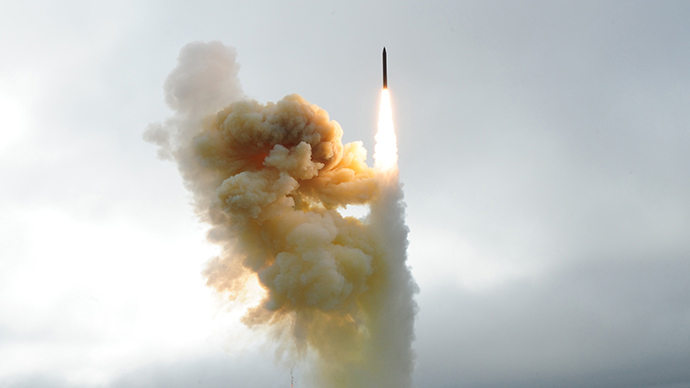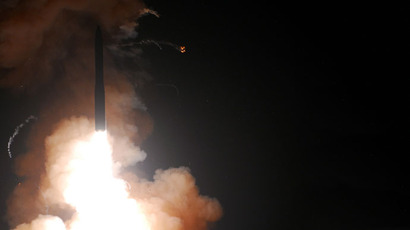US missile defense system proves to be useless after $40 bln spent

Despite a decade of testing and tens of billions of dollars’ worth of research, a major missile defense program in the United States has proven to be anything but successful, a new investigation suggests.
Nevertheless, the Missile Defense Agency, or MDA, plans on conducting next week its ninth exercise of that costly system since 2004, and the outcome of the drill is expected to influence whether or not more than a dozen new interceptors are added to the United States’ arsenal.
According to a recent investigation by the Los Angeles Times, however, that system has so far been marred by mistakes that raise questions about its ability to thwart any major attack and the cost incurred during the last decade.
The results of the Times probe, published by the paper on Sunday this week, show that Pentagon officials with inside knowledge of the Ground-based Midcourse Defense system, or GMD, say the program has suffered from mishaps more often than the US government would have expected.
“[A] decade after it was declared operational, and after $40 billion in spending, the missile shield cannot be relied on, even in carefully scripted tests that are much less challenging than an actual attack would be,” David Willman wrote for the Times over the weekend.
“Official pronouncements about the GMD system, The Times found, have overstated its reliability.”
Results have been mixed to say the least since as far as 1999 when GMD testing first began — half of the first 16 tests of the system's ability to intercept a mock enemy warhead failed, the Times acknowledged. The system was finally upgraded to “operational” in 2004, but five of the eight tests held in the last decade have failed as well.
The GMD system is expected to intercept incoming missiles, like hypothetical attacks waged by adversaries such as Iran or North Korea. Even when US officials have scripted test drills to try out this ability, however, the GMD program has hardly acted as expected. The last successful intercept occurred five-and-a-half years ago, and the last three attempts — two in 2010 and one last July — all were unsuccessful.
"The tests are scripted for success," Philip E. Coyle III, a former director of operational testing and evaluation for the Pentagon, told the Times. "What's amazing to me is that they still fail."
Because of this tainted track record, all eyes are expected to be on a drill later this month on June 22. MDA Director Navy Vice Adm. James Syring told Congress recently that the upcoming intercept flight test remains his “highest priority,” and with good reason:14 new intercepts could be added to a MDA system currently composed of 30 if the upcoming test is a success, but Defense Secretary Chuck Hagel hinted that failure would mean a halt in funding.
Speaking before Congress, Sen. Dick Durbin (D-Illinois) said “not just friends of the United States but even our enemies” will monitor the next round of testing in order to gauge the current abilities of the MDA program.
“I’m also optimistic we have identified the cause of the intercept failure involving our first-generation EKV last July when the CE-1 failed to separate from the booster’s third stage,” Syring said. “We have accounted for this issue in the upcoming flight test and we are working toward a correction for the entire fleet before the end of the year.”
Regardless, Syring is appealing to Congress for $99.5 million to begin what he described Wednesday to the Times as "redesign improvement" that would stop short of a complete overhaul, sources familiar with the matter told the paper.














